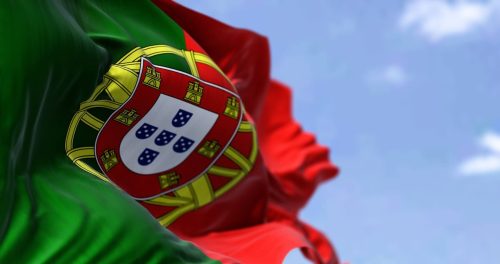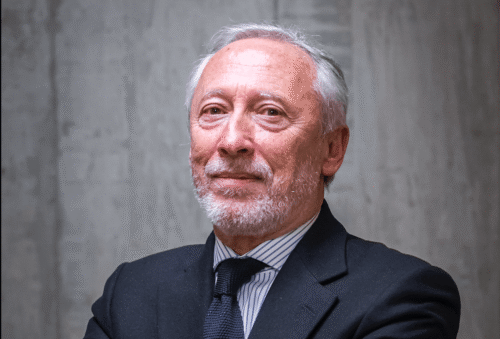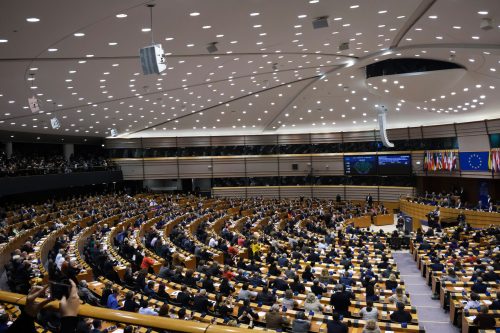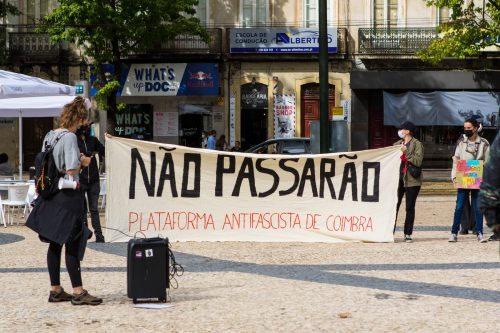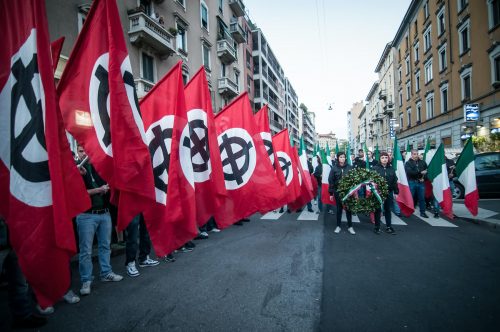Portugal
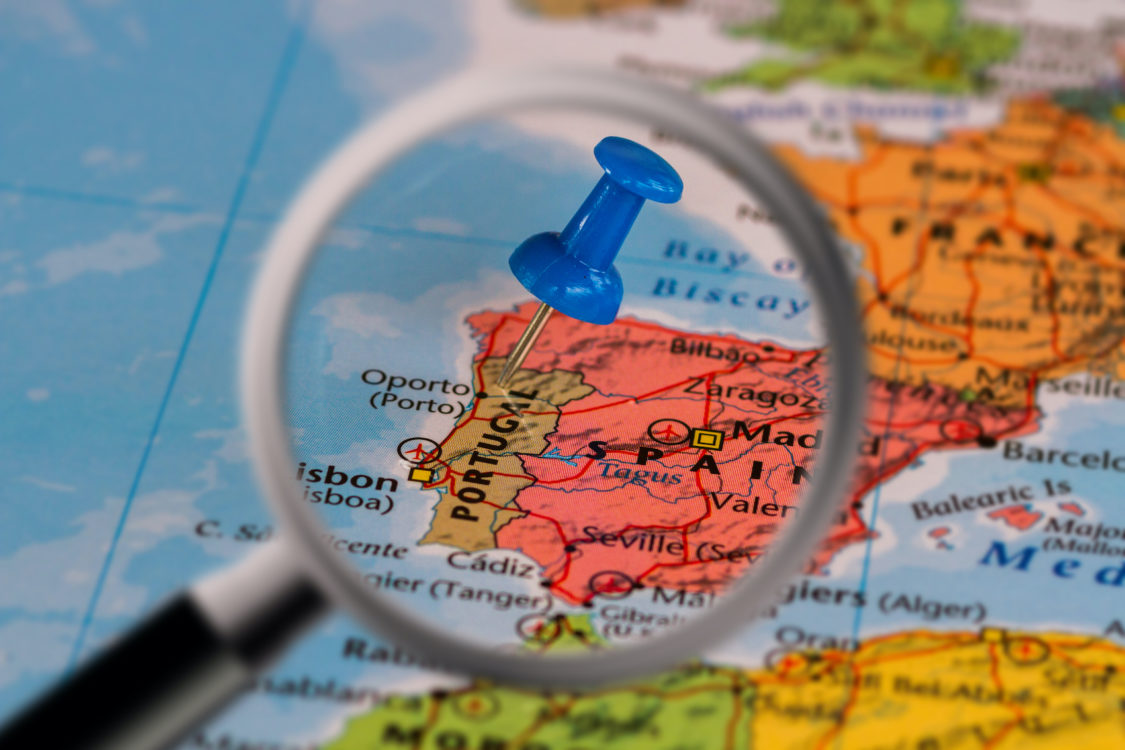
Partly due to its painful half-century experience under a right-wing dictatorship, populism is less prevalent in Portugal compared to its neighboring countries. Anti-establishment, anti-immigrant, and Eurosceptic sentiments surely exist in the country, though they have not been exploited. Time and opportunities may pave the way for populists to achieve more political prominence in the future.
Located in Southwestern Europe, Portugal, officially the Portuguese Republic, is a unitary, semi-presidential constitutional republic (Constitution, 2005). Partly due to its painful half-century experience under a right-wing dictatorship, Portugal has remained relatively immune to the populist wind blowing across Europe. None of the political parties in the Portuguese Parliament actively promotes an explicit right-wing populist agenda, such as anti-immigration or anti-Islam stances, while only two minor parties – the Left Bloc (BE) and the Communist Party (PCP) – are in favor of exiting or reforming the European Union (EU).
Although often overlooked in the modern international order, there were times when Portugal had the world’s attention. During the 15th and 16th centuries, the Portuguese established and maintained the very first global empire after the Renaissance; today, it is considered the longest-lived European colonial empire. The Portuguese Empire remained a monarchy for centuries until the 5 October 1910 revolution, which gave birth to the democratic but politically unstable Portuguese First Republic. Characterized by anarchy, corruption, and assassinations, the First Republic period was superseded by the Estado Novo – or the Second Republican authoritarian regime that took power in 1933.
Heavily dominated by conservative and autocratic ideologies, the Estado Novo became a de facto dictatorship under a right-wing government presided over by Prime Minister António de Oliveira Salazar. A new constitution drafted by Salazar established a corporatist state and an authoritarian government that would last until 1974.
Democracy was restored with the 1974 Carnation Revolution, marking the establishment of the Third Portuguese Republic, a period corresponding to the current democratic state. The first free election was held in 1975 to replace the 1933 Constitution. A general election in 1976 put the center-left socialist Mário Soares into office. The Third Republic granted independence to almost all its overseas territories and began a process of democratization that led to the accession of the country to the EU, in 1986.
In 2002, Portugal furthered its integration with the EU by adopting the Euro as its currency. However, unlike other major European economies, Portugal failed to enjoy significant economic growth in the 2000s; instead, it found itself in an economic recession from 2002–03 and another one from 2008–09. When the country was hit by the European sovereign-debt crisis in the 2010s, it was largely seen as a part of the wider downturn of the Portuguese economy that started in the early 2000s. However, despite the opportunity that came with the crisis, right-wing populism failed to find a strong voice in Portuguese politics, while left-wing populism slightly boosted the Left Bloc as well as other major center-left parties.
There are currently five populist political parties in Portugal.[1] None of these parties, however, emerged as part of a populist wave that came with the European sovereign debt crisis in the 2010s.
Founded in 1999, The Left Bloc (BE) – Bloco de Esquerda – is perhaps the most visible populist party in the country. It was formed by the merger of three left-wing parties – the People’s Democratic Union, Revolutionary Socialist Party, and Politics, and has had full party status since its founding. The BE managed to get 16 seats in the 2009 legislative election; however, this number dwindled to eight seats in the 2011 election, partly because of the social demoralization wrought by the on-going economic crisis.
The party’s anti-austerity and anti-corruption campaign allowed it to achieve its best result in its history in the 2015 election, winning more than 10 percent of the vote and becoming the third-largest parliamentary group. The Bloc then opted to support the center-left Socialist Party (PS) minority government that reversed much of the austerity program the previous conservative government introduced in 2011. The BE preserved its votes in the 2019 parliamentary election when almost half a million votes were cast for the party.
The Left Bloc is not known for an extreme Eurosceptic stance. The party does not support Portugal leaving the European Union or the Eurozone. Its leaders state that such a move would only be taken into account if further austerity measures are imposed by the European authorities for the sake of the Eurozone (Broder, 2019).
Founded in April 2019, Chega (Enough) is another populist party that is worthy of mention. Only seven months old at the time of the 2019 general election, the party managed to secure just one seat. Chega is unique: it became the first anti-establishment party to enter the Portuguese Parliament since the establishment of the Third Republic in 1974. The party’s leader André Ventura is in favor of lowering taxes, strengthening borders, and “safeguarding national sovereignty from encroaching globalism” (Kern, 2019). Ventura is also known for his critical stance towards the EU while vowing to take Portugal out of the UN’s Global Compact for Migration. The party has also an “unequivocal commitment” to support Israel by transferring the Portuguese embassy to Jerusalem (Kern, 2019).
Founded in 1921, The Portuguese Communist Party – Partido Comunista Português – is another populist party, though it has a relatively limited influence on Portuguese politics. After being Salazar regime’s clandestine opponent for decades, the PCP emerged as an actual political actor in the late 1980s. Since then, the party enjoys limited but steady popularity across Portuguese society, with its share of the vote remaining relatively stable. In the 2019 Parliamentary election, the PCP lost five seats compared with 2015, and, in terms of share of the vote, it had its worst election result since 1987.
Portugal’s relatively low immigration rates have also contributed to the country’s resistance to right-wing populism. The country is among the EU members where less than five percent of residents are foreign-born. In response to this, António Costa’s ruling Socialist Party passed a law in 2017 that aims to increase immigration numbers in the country. “We need more immigration, and we won’t tolerate any xenophobic rhetoric,” he said in response to critics (Stone, 2020). These positive steps yielded positive results as of 2019, with the Portuguese population increasing by 0.19 percent – the first increase in 10 years (Portuguese American Journal, 2020). It should also be noted that immigration to Portugal mostly occurs from Portuguese-speaking countries, which facilitates their integration into society (Pordata, 2019).
In terms of civil and political liberties, Portugal is a free country (Freedom House, 2020). Portuguese voters enjoy regular and competitive multiparty elections. Although discrimination in terms of access to education, employment, and housing exists against disadvantaged minority groups, a good record of civil liberties, human rights, and political opportunities is retained (Freedom House, 2020). The country today remains one of the most culturally liberal and LGBT-friendly countries in Europe.
Despite these freedoms, anti-establishment, anti-immigrant, and Eurosceptic sentiments exist in Portugal, though they have not yet been exploited (Ames, 2019). It is, therefore, safe to argue that both left-wing and right-wing populist parties are currently on a trial run in the country. Time and opportunities may pave the way for them to achieve more political prominence in the future. As it is, Portuguese populism has a limited voice and largely revolves around the country’s long-lasting tension with the austerity measures imposed by EU institutions, rather than the right-wing populist agendas, such as anti-immigration, xenophobia, and protectionism.
July 7, 2020
References
— (2005). Portugal’s Constitution of 1976 with Amendments through 2005. https://www.constituteproject.org/constitution/Portugal_2005.pdf
— (2019). “Portugal. Foreign population with legal resident status: Total and by nationality”. Pordata. https://www.pordata.pt/Site/MicroPage.aspx?DatabaseName=Portugal&MicroName=Popula%C3%A7%C3%A3o+estrangeira+com+estatuto+legal+de+residente+total+e+por+algumas+nacionalidades&MicroURL=24&.
— (2020). “Report: Population increased for the first time in 10 years,” Portuguese American Journal, June 15, 2020. https://portuguese-american-journal.com/report-population-increased-for-the-first-time-in-10-years-portugal/
— (2020). Freedom in the World 2020: Portugal. Freedom House. https://freedomhouse.org/country/portugal/freedom-world/2020
Ames, Paul. (2019). “Portugal’s lonely populists,” POLITICO, May 21, 2019. https://www.politico.eu/article/portugals-lonely-populists-european-parliament-election/
Broder, David. (2019). “Making Portugal’s Break with Austerity Real.” Interview with Francisco Louçã, Jacobin. https://www.jacobinmag.com/2019/10/portugal-elections-economy-socialist-party-left-bloc-francisco-louca
Kern, Soeren. (2019). “Europe’s Populist Wave Reaches Portugal,” Gatestone Institute. October 26, 2019.https://www.gatestoneinstitute.org/15053/portugal-populists-chega
Stone, John. (2020). “Portugal’s socialist government celebrates rising immigration numbers,” Independent. January 16, 2020. https://www.independent.co.uk/news/world/europe/portugal-immigration-rise-birth-rate-socialist-eu-a9286781.html
[1] These are: The Portuguese Communist Party (Partido Comunista Português); The Portuguese Workers’ Communist Party/Re-Organized Movement of the Party of the Proletariat (Partido Comunista dos Trabalhadores Portugueses/Movimento Reorganizativo do Partido do Proletariado, PCTP/MRPP); The National Renovator Party (Partido Nacional Renovador); Workers Party of Socialist Unity (Partido Operário de Unidade Socialista); The Left Bloc (Bloco de Esquerda).





